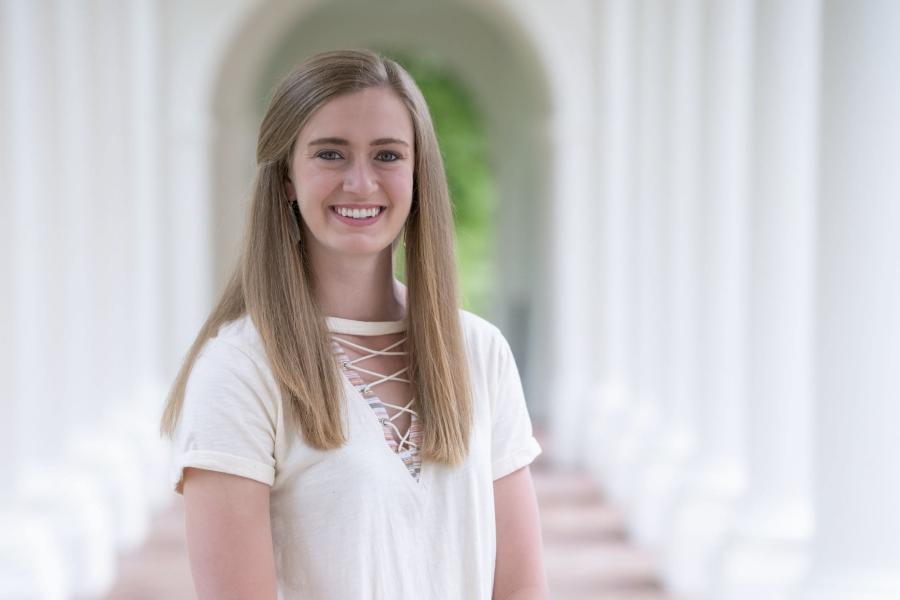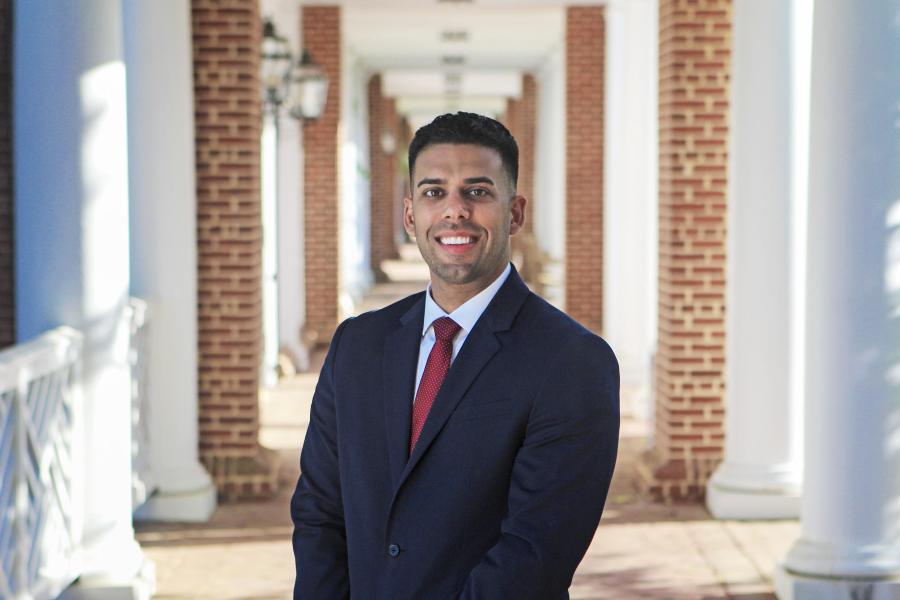Jasmine Rangel considers herself lucky; she’s never been without a place to live. But when she looks back on her childhood, she often feels amazed by the tenuousness of that good fortune.
“If any small thing had gone wrong, my life now would be completely different,” said Rangel, who on Friday will receive a master’s degree in public policy from the University of Virginia’s Frank Batten School of Leadership and Public Policy.
Rangel’s parents emigrated to the United States from Mexico before she was born. Given that her mother was undocumented, fear of deportation loomed. Money was also tight; her father worked in construction and her mother as a housekeeper.
But the neighborhood outside Atlanta where Rangel grew up wasn’t far from a public library. She remembers walking back from visits there with her mother, carefully carrying as many as 10 or 15 books at once as she made her way over the uneven sidewalk.
Since her mother couldn’t drive, if they had lived too far from the library to get there on foot, they might not have gotten there at all. And if that had been the case, she said, “I don’t think I would have had the curiosity that I do – the motivation to learn like I do now.”
Rangel has since become passionate about affordable housing. A first-generation college student, she completed her undergraduate degree with support from the Bonner Foundation, which awards scholarships to diverse, low-income students, and went on to work for the New Jersey-based organization through Americorps.








